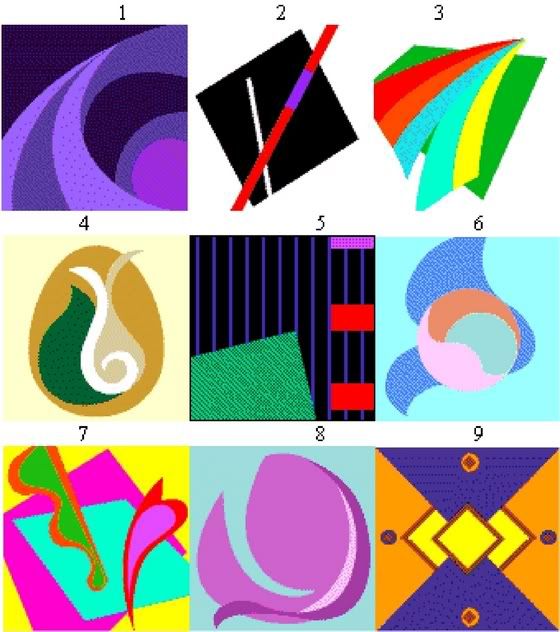What is emotional intelligence?
 Emotional intelligence is essentially the ability to recognize, manage, and use your emotions in positive and constructive ways. It’s also about recognizing the emotional states of others and engaging them in ways that feel good to all and create mutual safety, trust, and confidence.
Emotional intelligence is essentially the ability to recognize, manage, and use your emotions in positive and constructive ways. It’s also about recognizing the emotional states of others and engaging them in ways that feel good to all and create mutual safety, trust, and confidence.
Emotional intelligence (EQ) vs. Intellectual intelligence (IQ)
Research shows that intellectual intelligence (IQ) has less to do with success in life than emotional intelligence (EQ). We all know people who are academically brilliant and yet are socially inept and unsuccessful. What they are missing is emotional intelligence. Emotional intelligence is what helps you communicate clearly, lead others, and build powerful relationships at work and in your personal life. Emotional intelligence also helps you motivate yourself, solve problems, and achieve your goals.Emotional intelligence consists of four fundamental capabilities:
- Self-awareness – the ability to be conscious of your emotions and recognize their impact while using gut feelings to guide your decisions.
- Self-management – the ability to control your emotions and behavior and adapt to changing circumstances.
- Social awareness – the ability to sense, understand, and react to the emotions of others and feel comfortable socially.
- Relationship management – the ability to inspire, influence, and connect to others while managing conflict.
Emotional intelligence is the key to success and resilience
In studying people with strokes, brain tumors, and other types of brain damage, scientists have made some fascinating discoveries about intelligence. When the parts of our brains that enable us to feel emotions are damaged, our intellects remain intact. We can still talk, analyze, perform excellently on IQ tests, and even predict how we should act in social situations. But under these tragic circumstances, we are unable to make decisions in the real world—to interact successfully and appropriately with other people, to plan for the immediate or long-term future, to creatively solve problems, and ultimately, to succeed.
The difference between success and failure in life is less a product of what happens to you than how you react to unexpected, unpleasant, and threatening experiences. Those who can go with the flow survive and prosper.
Emotional intelligence isn’t a safety net that protects you from life’s tragedies, frustrations, or disappointments. Emotionally-intelligent individuals go through bad times and experience sadness, anger, and fear—just like everyone else. But they respond differently than less healthy people to these experiences. Emotional intelligence gives you the ability to cope and bounce back from stress, adversity, trauma, and loss. In other words, emotional intelligence makes you resilient.
Resilience gives you the ability to:
- Stay focused in a frightening or challenging situation
- Experience moments of joy in the face of sadness and loss
- Ask for and get support when needed
- Quickly rebound from frustration and disappointment
- Remain hopeful during challenging and difficult times
Emotional intelligence is the hidden factor in relationships and communication
For decades, we have viewed relationship obstacles through a flawed lens—one that fails to capture the real sources of connection and disconnection between people. When we look at communication from a moment-to-moment perspective, as new brain imaging technologies now enable us to do, we can see that what really keeps people connected lies beneath the surface.
Our emotions connect us to others
Emotions are the building blocks of every relationship in your life, and the power of those emotions cannot be overlooked. Emotions influence the way you relate and react to others—often without your awareness. If you are not keenly aware of the emotions you are experiencing internally and how you are communicating this externally—and similarly aware of the other person—you are apt to:
- Think that you are communicating one thing, while actually communicating something else
- Create confusion, insecurity, and mistrust
- Feel helpless and vulnerable when faced with conflict
- Use humor in a way that is off-putting or distances you from others
- Misinterpret what the other person really wants and needs
- Appear unattractive to others because of the negative effect you have on them
Most relationship advice misses the real emotional issues
Many people seek relationship advice to find answers to problems they believe are responsible for their conflicts, without realizing there are more fundamental emotional issues at the core of those problems. They are attempting to heal the surface symptoms of their dysfunctional relationships, without examining the real emotional issues that are simmering beneath. But until those fundamental issues are addressed, the problems and conflicts will continue.
Strong relationships are based on emotional intelligence
The more we learn about the brain, the more certain we are that humans are highly social creatures with strong needs for relationships and positive connections to others. We’re not meant to survive, let alone thrive, in isolation. Our social brains crave companionship—even when experience has made us shy and distrustful of others.
The ability to be aware of your own emotions and the feelings of others is the key to relationships that are engaging, exciting, fulfilling, creative, and productive. Emotional intelligence keeps your relationships strong and healthy. Without it, your relationships will always stall and break down. Fortunately, emotional intelligence is based on set of skills that you can learn at any time.
The skills of emotional intelligence help you:
- Build safety and trust
- Capture the attention and interest of others
- Respond to others with empathy and compassion
- Send and receive appropriate nonverbal signals
- Be more playful and creative
- Resolve conflict and repair wounded feelings




















No comments:
Post a Comment